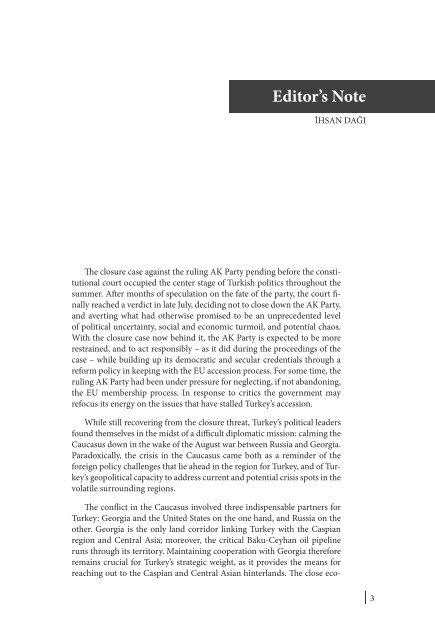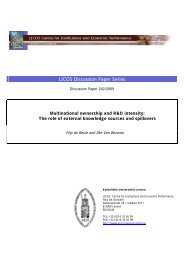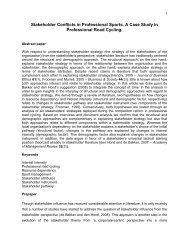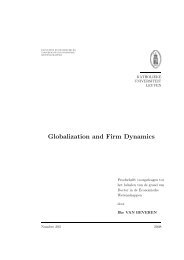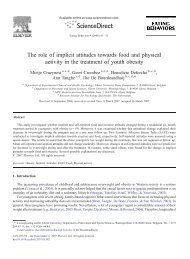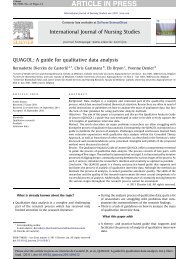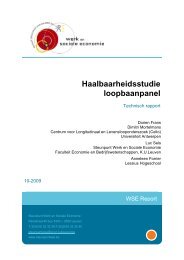View/Open - Lirias@Lessius
View/Open - Lirias@Lessius
View/Open - Lirias@Lessius
Create successful ePaper yourself
Turn your PDF publications into a flip-book with our unique Google optimized e-Paper software.
Editor’s Note<br />
İHSAN DAĞI<br />
The closure case against the ruling AK Party pending before the constitutional<br />
court occupied the center stage of Turkish politics throughout the<br />
summer. After months of speculation on the fate of the party, the court finally<br />
reached a verdict in late July, deciding not to close down the AK Party,<br />
and averting what had otherwise promised to be an unprecedented level<br />
of political uncertainty, social and economic turmoil, and potential chaos.<br />
With the closure case now behind it, the AK Party is expected to be more<br />
restrained, and to act responsibly – as it did during the proceedings of the<br />
case – while building up its democratic and secular credentials through a<br />
reform policy in keeping with the EU accession process. For some time, the<br />
ruling AK Party had been under pressure for neglecting, if not abandoning,<br />
the EU membership process. In response to critics the government may<br />
refocus its energy on the issues that have stalled Turkey’s accession.<br />
While still recovering from the closure threat, Turkey’s political leaders<br />
found themselves in the midst of a difficult diplomatic mission: calming the<br />
Caucasus down in the wake of the August war between Russia and Georgia.<br />
Paradoxically, the crisis in the Caucasus came both as a reminder of the<br />
foreign policy challenges that lie ahead in the region for Turkey, and of Turkey’s<br />
geopolitical capacity to address current and potential crisis spots in the<br />
volatile surrounding regions.<br />
The conflict in the Caucasus involved three indispensable partners for<br />
Turkey: Georgia and the United States on the one hand, and Russia on the<br />
other. Georgia is the only land corridor linking Turkey with the Caspian<br />
region and Central Asia; moreover, the critical Baku-Ceyhan oil pipeline<br />
runs through its territory. Maintaining cooperation with Georgia therefore<br />
remains crucial for Turkey’s strategic weight, as it provides the means for<br />
reaching out to the Caspian and Central Asian hinterlands. The close eco-<br />
3


